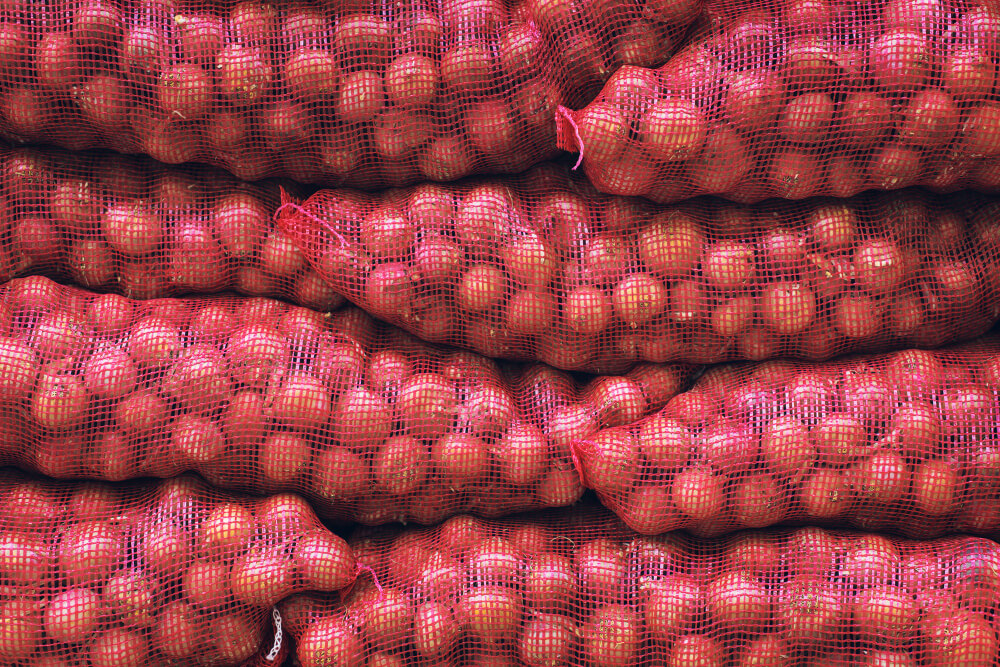
Nigeria has long been celebrated for its abundant onion harvests, yet a recent revelation shows that more than 1.6 million bags of onions have slipped through the cracks of official records. Despite flowing across borders into Ghana, Côte d’Ivoire, Benin, Cameroon, Congo, and Niger Republic, these exports failed to appear in national trade statistics. Here is why this matters—and what can be done to turn untracked trade into economic opportunity.
Informal Trade: A Double-Edged Sword
Onion farmers and traders in Nigeria’s Kano, Kaduna, and Sokoto regions have built thriving livelihoods on cross-border commerce. The roads connecting Nigeria to its neighbours bustle with trucks loaded with 50-kilogram bags of bright red and white onions. For many small-scale exporters, informal channels offer speed, flexibility, and immediate cash.
Yet these strengths mask a critical weakness. When shipments evade customs documentation, Nigeria’s official export data underreports the true scale of agricultural trade. The National Onion Producers, Processors and Marketers Association of Nigeria (NOPPMAN) estimates that over 1.6 million bags moved informally in recent months alone. Those figures should have bolstered Nigeria’s export totals—and its bargaining position in regional markets.
Why Missing Data Matters
Nonye Ayeni, Executive Director of the Nigerian Export Promotion Council (NEPC), raised the alarm at a recent MoU signing with the National Bureau of Statistics (NBS). She pointed out three far-reaching consequences of unrecorded exports:
- Distorted Economic Planning
Without accurate statistics, policymakers cannot allocate resources effectively or forecast revenue from tariffs and duties. Investments in cold storage, roads, and processing facilities risk being underfunded or misdirected. - Weakened Negotiation Power
In regional forums and global trade talks, Nigeria’s voice is judged by its official export figures. Underreporting diminishes the country’s standing, making it harder to secure favourable terms or development aid for agricultural infrastructure. - Lost Support for MSMEs
Informal traders—many of whom are women and youth—miss out on training programs, finance schemes, and quality safety nets designed for formal exporters. Recognition in the national data would unlock opportunities for micro-loans and certification grants.
Bridging the Data Divide
The NEPC-NBS agreement aims to transform this challenge into an opportunity by strengthening data collection systems. Key steps include:
- Integrating Informal Trade Surveys
Deploy mobile teams to border communities to record volumes, destination markets, and trader demographics. This granular data will complement existing customs records. - Digital Traceability Platforms
Encourage growers’ associations to adopt simple smartphone apps that log each bag’s origin, buyer, and transit route. Real-time dashboards will alert officials to large movements that escape formal channels. - Stakeholder Collaboration
Bring NOPPMAN, state ministries of agriculture, and private logistics firms into regular data-sharing meetings. When each link in the value chain contributes information, gaps shrink and trust grows.
The Bigger Picture: West African Onion Markets
Nigeria is one of the continent’s top onion producers, but regional neighbours also ramp up output. Niger has reported the fastest growth in production, while Egypt dominates premium export markets worldwide. Mali and Burkina Faso are boosting their own volumes.
Under the African Continental Free Trade Area (AfCFTA), lower tariffs and harmonized standards could drive even more cross-border onion trade. But to seize these gains, countries must invest in:
- Cold Storage Infrastructure
Preserving freshness cuts spoilage rates and extends shelf life on distant markets. - Processing Facilities
Converting onions into dehydrated flakes, powder, and pickled products adds value and opens new revenue streams. - Quality Control Laboratories
Ensuring compliance with phytosanitary standards prevents rejections at destination ports and builds trust.
Turning Untracked Trade into National Strength
Nigeria’s onion story is not one of loss but of unrealized potential. By shedding light on the informal export sector, NEPC and NBS set the stage for stronger economic planning, fairer support for grassroots traders, and a more competitive presence in West African markets.
Farmers in Kano who once sold their entire harvest cash-in-hand can look forward to formal contracts and access to affordable credit. Young entrepreneurs in Lagos can build digital platforms that log exports and connect buyers. Women traders at border crossings can earn certification that boosts their credibility.
The revelation that 1.6 million bags of onions went unrecorded is a wake-up call. Nigeria’s agricultural future depends not just on planting more onions but on capturing the full story of its trade. With improved data systems, digital traceability, and collaborative frameworks, informal flows can be brought into the light turning hidden exports into recorded achievements that drive inclusive growth.
Stay updated with the latest farming tips and agriculture industry news from Africa by subscribing to our newsletter. Don’t miss out on valuable insights and updates. Follow us on Twitter, LinkedIn, and Facebook to join our farming community and stay connected with us.


















